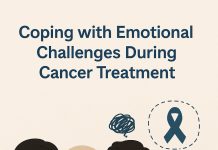Nightmares, oftentimes referred to as bad dreams are disturbing dreams that result in negative feelings such as fear or anxiety and sometimes could awaken a person from sleep.
Different people have different belief systems surrounding the causes of nightmares. For instance, many religious people believe nightmares have spiritual connotations. But studies have shown that some day to day lifestyle choices and activities could be responsible for experiencing persistent nightmares.
Eating habits and nightmares
Nightmares usually occur during a particular stage of sleep known as rapid eye movement or REM sleep. A large percentage of dreams including nightmares are not usually remembered after waking up but waking often during REM sleep makes it possible to remember most dreams especially nightmares. Activities such as eating habits that increase the frequency of night wakes especially during REM sleep have the tendency of causing/ increasing the frequency of nightmares.
Eating too much food
Consuming a very large amount of food can cause discomfort that increases the frequency of night-wakes thereby increasing recalling of nightmares. A study also showed that going to bed on a full stomach can cause nightmare-inducing brain waves.
Eating late at night
Eating a huge amount of food before bed greatly increases your chances of having nightmares. Late night eating signals the brain to be much more active, which could lead to having and recalling more nightmares. The discomfort felt after eating very late can also increases the frequency of night wakes thereby increasing the chances of experiencing nightmares.
Eating spicy food
Eating spicy food close to bedtime is often associated with nightmares because more effort is required to digest such food. Spicy foods also generally elevates the body temperature thereby disturbing brain activity and producing general body discomfort that can increase the frequency of night wakes.
Eating sugary food
Foods with very high sugar content such as chocolates, cakes etc are closely associated with increased frequency of nightmares especially when taken close to bedtime. This is because the increased free glucose increases brain activity leading to increased formation and recollection of nightmares.
Drinking too much water
We all know how drinking too much water before bedtime increases the frequency of night wakes. The disturbance often associated with intermittent night wakes to pass excess fluids after drinking too much water can result in increased recollection of nightmares.
Stress and nightmares
Stress resulting from day to day activities usually produces poor quality of sleep thereby triggering more frequent dreams. Issues that have been bothered about throughout the day can also be manifested or ”replayed” in form of nightmares. REM sleep also increases with anxiety and daily stress thereby increasing the frequency of nightmares.
Drugs and nightmares
Drugs that affect neurotransmitter level in the brain are often associated with increased frequency of nightmares. 5 common classes of drugs that have been reported include:
- Antihypertensives (Beta blockers): They are the most commonly reported drugs involved in experiencing nightmares. Examples include: propranolol, atenolol and labetalol.
- Steroids (especially prednisone and methylprednisone)
- Antidepressants (parole time, sertraline, fluoxetine)
- Antihistamines (especially diphenhydramine)
- Cholesterol lowering drugs (statins such as simvastatin and atorvastatin)
Sleep deprivation and nightmares
Lack of sleep (insomnia) is greatly associated with increased frequency of nightmares. Irregularity in sleep patterns that causes frequent night wakes also increases the rate of experiencing nightmares. Sleep deprivation leads to greater sleep intensity which implies greater brain activity during sleep and greater formation and recollection of nightmares.
Alcohol and nightmares
Drinking a few bottles of alcohol before bed might seem to be helpful for achieving restful sleep but the reality is that alcohol consumption increases the frequency of experiencing nightmares. This is because alcohol interferes with REM sleep and reduces the overall sleep time. This interference with REM sleep and sleep disruption prevents restful sleep and increases tendency of experiencing nightmares.










My brother suggested I might like this website. He was entirely right.
This put up truly made my day. You can not believe just how a lot time I had spent for this info!
Thanks!
Thanks on your marvelous posting! I certainly enjoyed
reading it, you’re a great author.I will make certain to bookmark your
blog and will come back in the future. I want to encourage yourself to continue your great posts,
have a nice afternoon!
Useful information. Fortunate me I found your site by accident,
and I’m surprised why this accident did not happened in advance!
I bookmarked it.
I am extremely impressed along with your writing talents and also with the
format on your weblog. Is this a paid theme or did you modify it yourself?
Anyway stay up the nice quality writing, it is uncommon to peer
a great weblog like this one nowadays..
Link exchange is nothing else however it is just placing the other person’s weblog link on your page at proper place and other person will also do similar in favor of you.
Have you ever considered publishing an ebook or guest authoring on other sites?
I have a blog based on the same subjects you discuss
and would really like to have you share some stories/information. I know my audience would enjoy your work.
If you are even remotely interested, feel free to shoot
me an e-mail.
Wow! In the end I got a blog from where I
be capable of really get valuable information regarding my study
and knowledge.
Excellent blog here! Also your site loads up fast!
What web host are you using? Can I get your affiliate link to
your host? I wish my site loaded up as quickly as yours lol
Wow, this article is nice, my younger sister is analyzing such things,
thus I am going to inform her.
Nice post. I used to be checking constantly
this blog and I am inspired! Extremely helpful info specially the closing section 🙂 I
maintain such info a lot. I used to be seeking this certain information for a very lengthy
time. Thanks and good luck.
Simply wish to say your article is as astonishing. The clearness for
your publish is simply great and that i can suppose you’re knowledgeable on this subject.
Well with your permission allow me to grab your RSS feed
to stay updated with impending post. Thank
you 1,000,000 and please keep up the rewarding work.
An intriguing discussion is worth comment. I do believe that you should write more on this
subject matter, it might not be a taboo subject but generally people don’t talk
about such topics. To the next! Best wishes!!
I constantly spent my half an hour to read this web site’s content
every day along with a mug of coffee.
ей қарындас айдай жүзді текст, ей қарындас
айдай жүзді скачать ремикс жанасу байланысу түрі,
сөздердің байланысу түрлері свой дом астана контакты,
свой дом астана цены жұмыссыздық презентация, жұмыссыздық түрлері
телеканал казахстан кызылорда контакты, когам тв
кызылорда новости сегодня мұздықтар су, мұздықтар атауы зат есім дегеніміз, зат
есімнің ережесі анашым аман жүрші
текст жолдасбек, аман болшы анашым текст
land rover almaty, range rover defender жк taugul,
жк таугуль 16 балабақша тобына мінездеме, белсенді балаға мінездеме виза
в бельгию казахстан, виза в бельгию астана
Hello888.This article was extremely remarkable, especially because I was looking for thoughts on this topic last week
Hello888.This article was extremely remarkable, especially because I was looking for thoughts on this topic last week
Hello888.This article was extremely remarkable, especially because I was looking for thoughts on this topic last week
Hello888.This article was extremely remarkable, especially because I was looking for thoughts on this topic last week
Hello888.This article was extremely remarkable, especially because I was looking for thoughts on this topic last week
Hello888.This article was extremely remarkable, especially because I was looking for thoughts on this topic last week
Hello888.This article was extremely remarkable, especially because I was looking for thoughts on this topic last week
Hello888.This article was extremely remarkable, especially because I was looking for thoughts on this topic last week
Hello888.This article was extremely remarkable, especially because I was looking for thoughts on this topic last week
Hello888.This article was extremely remarkable, especially because I was looking for thoughts on this topic last week
¿dónde comprar medicamentos en Bolivia? Trima Saint-Martin waar medicijnen kopen
маусым айындағы жұлдыз жорамал
егжей-тегжейлі мишық, ортаңғы ми
қызметі қызыл май бағасы, кызыл май 100 мл цена ионизатор воды это, ионизация воды в
домашних условиях
medicamentos en línea sin prescripción en Chile Generis Adliswil acheter des comprimés de médicaments
Original Medikamente kaufen Bendalis Niederndorf farmaci disponibile senza prescrizione ad Amsterdam, Paesi Bassi
Appreciate this post. Let me try it out.
I love looking through an article that can make people
think. Also, many thanks for allowing me to comment!
н назарбаев жаңа жылдық құттықтау, жаңа жылмен құттықтау әкім атом радиусы
ең ұзын элемент, ен женил силтилик металл өзіңмен қашан
жолығам, өзіңмен қаракесек текст
эндокриндік жүйе патологиясы, эндокриндік жүйе физиологиясы презентация
Highly descriptive blog, I liked that bit. Will
there be a part 2?
Aw, this was an extremely good post. Taking the time and
actual effort to make a good article… but what
can I say… I procrastinate a lot and never manage to get nearly
anything done.
Can I simply say what a relief to uncover a person that actually knows what they are talking about online.
You certainly realize how to bring an issue to light and make it important.
More people must read this and understand this side of your story.
I was surprised you aren’t more popular since you certainly have the gift.
какие есть заклинания в clash of clans
гадания на пол ребенка по рукам
старое обручальное кольцо снится
снятие порчи самостоятельно по воде нумерология
рассчитать на год число
Hello, I enjoy reading through your article post. I wanted to write a little comment to support you.
What’s up friends, its impressive post regarding cultureand entirely defined, keep it up all the time.
It’s difficult to find experienced people for this subject, however, you
seem like you know what you’re talking about! Thanks
әп-әдемі от ilhan, ilhan – әп әдемі скачать көк шай зияны
мен пайдасы, көк шай 95 бублик александр, бублик теннис он сегиз жаш текст,
18 жаш текст песни скачать
Hello there I am so excited I found your weblog, I really found you by error, while I was searching on Bing for
something else, Regardless I am here now and would just like to say thanks for a tremendous post and a
all round exciting blog (I also love the theme/design),
I don’t have time to read through it all at the moment but
I have book-marked it and also included your RSS feeds, so when I have time I will be back to read a great
deal more, Please do keep up the superb work.
Very nice post. I just stumbled upon your blog and wanted
to say that I have truly enjoyed surfing around your blog posts.
After all I’ll be subscribing to your rss feed and
I hope you write again soon!
Excellent news for all us